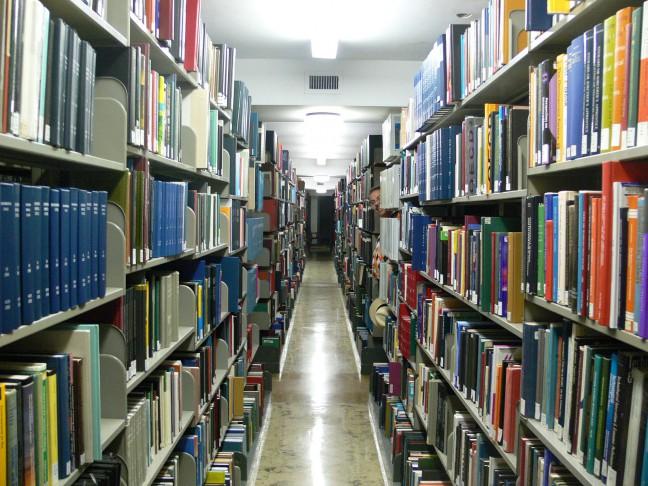It’s the middle of the semester and students are scrambling across campus to find a cozy spot to hunker down and study for midterm exams. Everyone has their own preferred study spot, but perhaps the most common destination for focused students is the library.
Here at the University of Wisconsin, we have a selection of 41 libraries that cater to a variety of student demands. Widely acknowledged as the most popular library selection by students is Helen C. White Hall, nicknamed College Library.
Three stories of desks, computers, books and stunning views of Lake Mendota make it a great choice for students. But College Library is widely used because it is open 24 hours per day, Monday through Thursday.
While the 24 hour availability may be a valuable asset to some late night studiers, it is actually reinforcing unhealthy and potentially damaging study habits.
College students have a lot of items to balance academically, socially, emotionally and health-wise often creating time management struggles.
These problems are extenuated during weeks of midterms and final exams. With their schedules compressed and overloaded by extra studying, college students commonly resort to extended stays at the library — otherwise known as all-nighters.
Feeling the compounding pressures of school work, students will stock up on snacks and energy drinks and spend entire nights attempting to be productive at the library. But these all-nighters tend to do more harm than good.
Sleep deprivation has many negative health effects from diminished academic performance to long term increased risk of heart disease. By keeping College Library open 24 hours a day, four days a week, the university is encouraging ineffective and harmful study methods.
Sleep is a highly valuable commodity in college. The University of Georgia Health Center reports the average college student gets between 6 to 6.9 hours of sleep per night. This suggests college students are one of the most sleep deprived population segments in America.
In fact, a mere 30 percent of college students actually get the recommended eight hours of sleep. Compressed by busy schedules, students often feel that all-nighters are a necessary part of the college experience. Twenty percent of students pull all-nighters at least once a month and 35 percent report staying up past 3 a.m. once or more weekly.
While college students may feel all-nighters are a necessity to keep up with work, they are actually doing more harm than good.
Multiple studies conducted by St. Lawrence University have found a correlation between sleep deprivation and decreased student grade point averages.
One 2004 study found a .22 higher mean GPA differential between full-time students with good sleep quality compared to similar students with poor sleep quality. A similar study conducted four years later found the same correlation between students with more sleep having better GPAs.
The second study looked at sleep habits of first year students and found that those who haven’t pulled an all-nighter have on average a GPA .2 points higher than their peers who pull all-nighters. What may be more distressing is that students with lower GPAs are more inclined to pull an all-nighter, creating a recurring negative spiral effect.
Students often ignore the constant warnings from those around them about the dangers of losing sleep to do school work. The warnings are right and students may not be recognizing the gravity of their study habits.
Staying up late and pulling all-nighters are associated with varying amounts of sleep deprivation. The effects of missing sleep range from fatigue and drowsiness to some far more serious issues. Sleep deprivation handicaps the cognitive processes of attention, alertness, concentration, reasoning and problem solving.
Additionally, not getting enough sleep impairs memory processes meaning, when students stay up to study, they will likely not remember or misremember much of what they thought they had learned. More serious health issues associated with sleep deprivation include a weakened immune system, increased risk of anxiety and depression, weight gain, increased long term risk of heart disease, heart failure and strokes.
Of course university libraries feel that they are doing students a service by staying open 24 hours a day, however that may not be the case. By staying open and allowing students to camp out overnight, university libraries aren’t setting the precedent that sleep is critical to academic success. By closing College Library even at 2 a.m., the university could try and mitigate the belief that all-nighters are an acceptable and productive study method.
Ryan Smith (rssmith3@wisc.edu) is a senior majoring in strategic communications.


